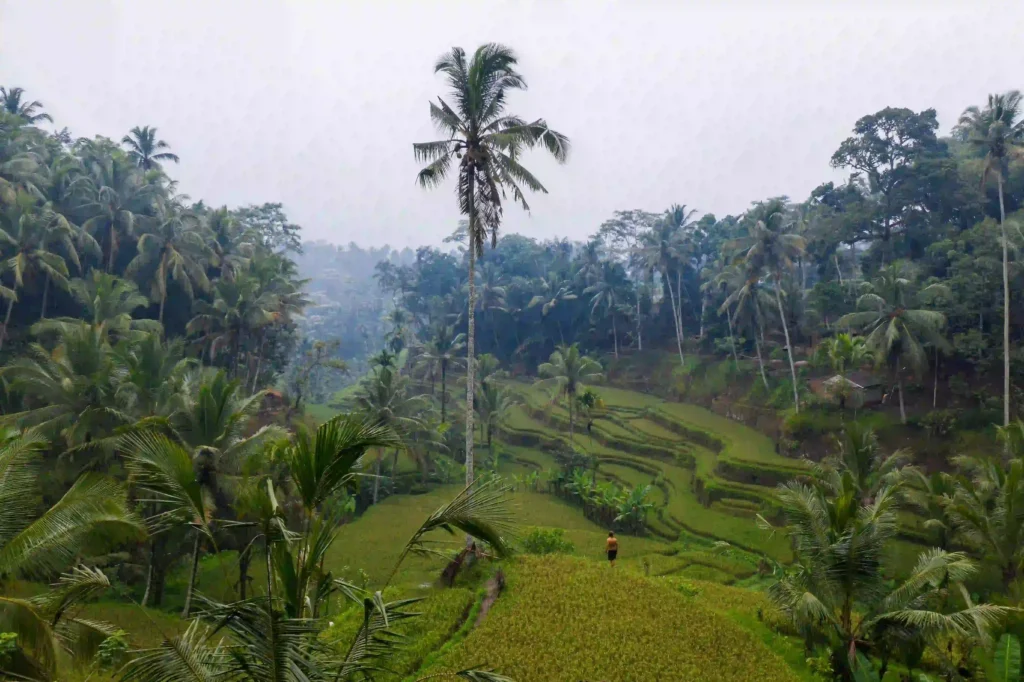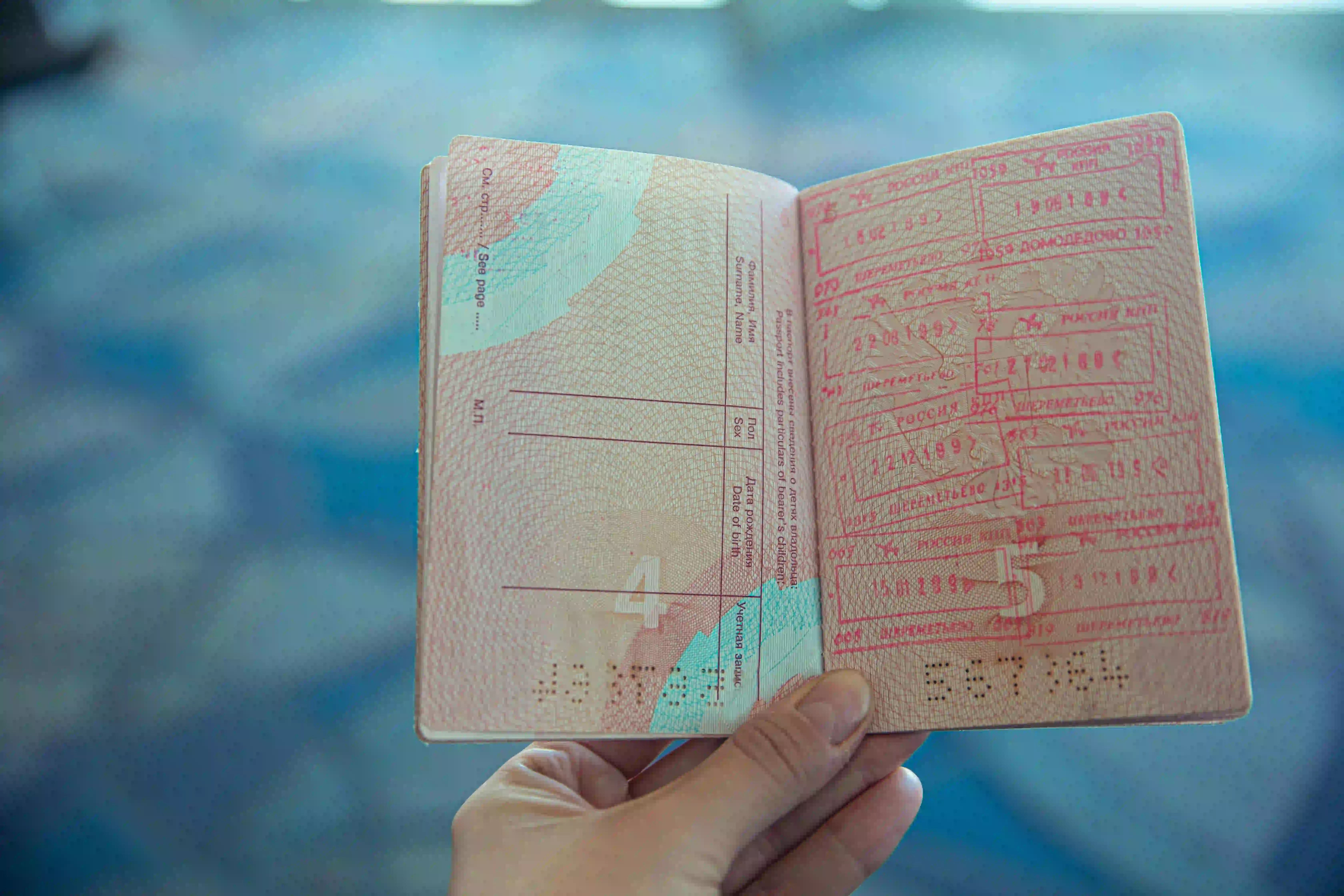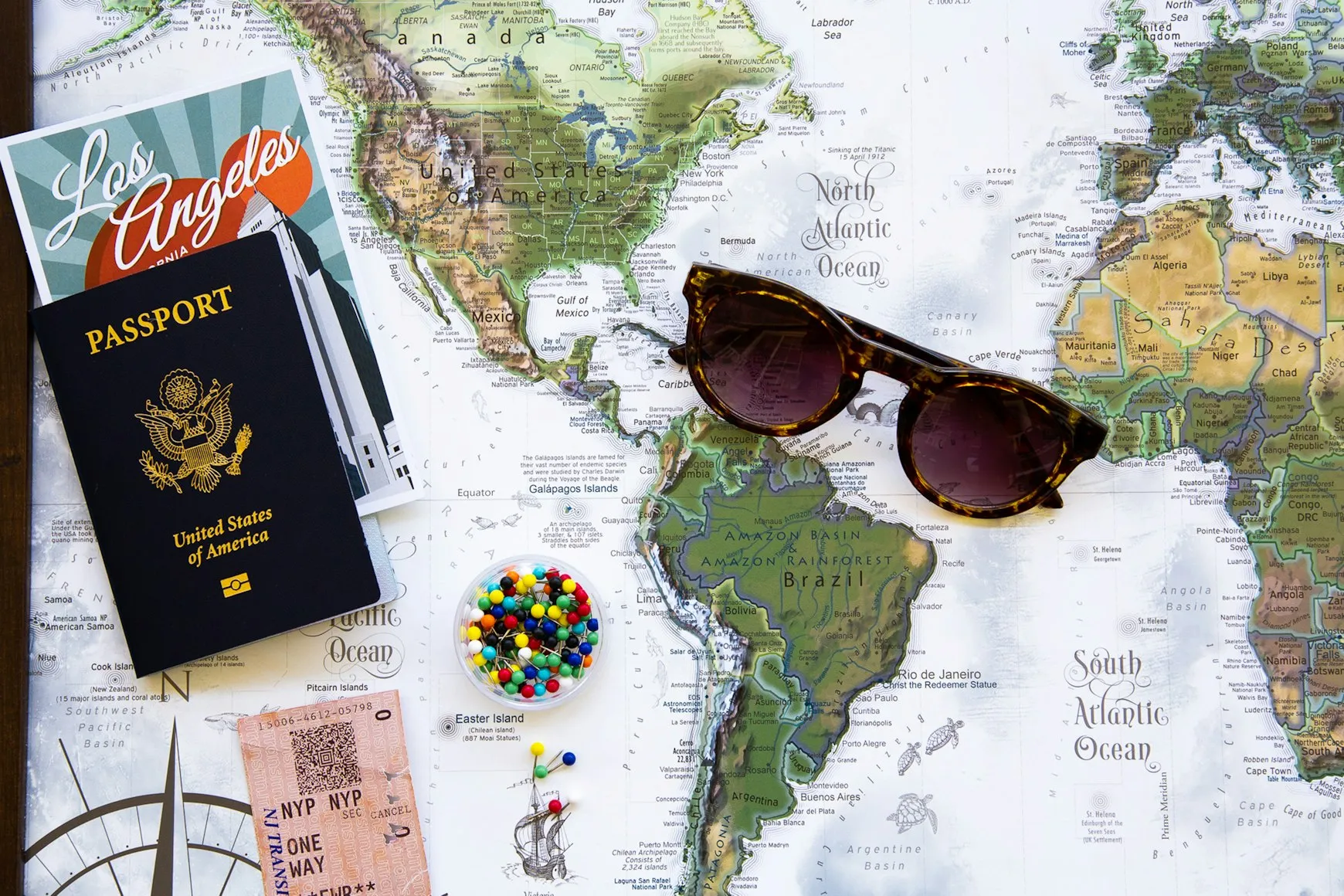Bali vs Thailand: Best Visa for Remote Workers in 2025
ghifari
September 11, 2025
9 min read

Torn between Bali’s spiritual vibes and Thailand’s tropical paradise? This comprehensive comparison reveals which destination offers the best visa options, costs, and lifestyle for digital nomads and remote workers in 2025.
The Digital Nomad Dilemma: Bali or Thailand?
Both Bali and Thailand have emerged as Southeast Asia’s premier destinations for remote workers, but each offers distinctly different visa pathways, costs, and experiences. Whether you’re a seasoned digital nomad or planning your first remote work adventure, choosing the right destination can make or break your experience.
Quick Answer: Thailand’s DTV offers better long-term value (5 years, $300), while Bali’s E33G provides easier qualification (1 year, $830). Your choice depends on your timeline, budget, and work situation.
Thailand Digital Nomad Visas: The Complete Breakdown
Destination Thailand Visa (DTV) – The Game Changer
Thailand’s DTV visa launched in 2024 has revolutionized the digital nomad landscape, offering unprecedented value for long-term remote workers.
Key Benefits:
- 5-year validity with multiple entries
- 180 days per entry, extendable to 360 days annually
- Lowest cost among major nomad visas: ~$300 USD
- Family inclusion: Spouse and children under 20 eligible
- No tax on foreign income (with proper structuring)
Requirements:
- Age 20+ years
- 500,000 THB ($15,000 USD) in bank account for 3 months
- Proof of remote employment or freelance business
- Health insurance coverage
- Clean criminal background
Best For: Long-term nomads planning 2+ years in Southeast Asia, families, established remote workers
Long-Term Resident (LTR) Visa – Premium Option
For high-earning professionals, Thailand’s LTR visa offers the ultimate long-term solution.
Features:
- 10-year validity
- Work-from-Thailand professional category
- Tax benefits on foreign income
- Fast-track immigration lanes
Requirements:
- $80,000+ annual income for 2 years
- Employment with well-established overseas company
- Master’s degree (in some categories)
- 500,000+ THB application fee
Best For: Senior professionals, executives, high-income remote workers
Tourist Visa Options
- Tourist Visa Exemption: 30 days (many nationalities)
- Tourist Visa: 60 days, extendable to 90 days
- Multiple Entry Tourist Visa: 6 months validity, 60 days per entry

Indonesia (Bali) Visa Options: Comprehensive Guide
E33G Remote Worker Visa – Digital Nomad Focused
Indonesia’s E33G visa is specifically designed for remote workers and digital nomads.
Key Features:
- 1-year validity (non-renewable)
- Work legally for overseas companies
- Multiple entry permissions
- Family sponsorship available
- KITAS (temporary residence permit) status
Investment:
- $830-1,200 USD visa cost
- Bank statements showing consistent income
- Employment contract with overseas company
- Health insurance requirement
Best For: First-time nomads, those testing long-term Asia living, remote employees
B211A Business Visa – Flexible Option
The B211A visa remains popular for shorter-term stays and business activities.
Benefits:
- 60-day initial stay
- Extendable up to 180 days total
- Business meeting permissions
- Market research activities
Costs:
- $150-250 USD depending on processing
- Extension fees: ~$50 per month
Best For: Entrepreneurs, consultants, short-term projects
Tourist Visa Solutions
- Visa on Arrival (VOA): 30 days, $35, extendable once
- Tourist Visa: 60 days, multiple extensions possible
Cost Comparison: Real Numbers
Annual Cost Breakdown (Including Extensions)
Thailand DTV: $60/year (after initial payment) Indonesia E33G: $830/year (new visa required annually) Thailand Tourist: $400-600/year (visa runs, extensions) Indonesia B211A: $500-800/year (multiple visas, extensions)
Hidden Costs to Consider
Thailand:
- Border runs: $100-200 per trip
- Visa extensions: $60 per extension
- Agent fees (optional): $100-300
Indonesia:
- Exit permit (EPO): $100 when leaving permanently
- Address registration: $125
- Agent services: $200-500
Lifestyle & Infrastructure Comparison
Internet & Coworking
Thailand Advantages:
- Average speed: 25-50+ Mbps nationwide
- Abundant coworking spaces in Bangkok, Chiang Mai
- 24/7 cafes with reliable WiFi
- Backup internet widely available
Bali Advantages:
- Canggu/Seminyak: World-class coworking hubs
- Growing infrastructure: Fiber optic expansion
- Digital nomad community: Largest in Southeast Asia
- Unique work environments: Rice field offices, beach cafes
Cost of Living (Monthly)
Thailand:
- Budget lifestyle: $800-1,200
- Comfortable living: $1,200-2,000
- Luxury lifestyle: $2,500+
Bali:
- Budget lifestyle: $900-1,300
- Comfortable living: $1,500-2,500
- Luxury lifestyle: $3,000+
Accommodation Options
Thailand:
- Bangkok: Modern condos, $400-800/month
- Chiang Mai: Houses/condos, $300-600/month
- Islands: Beachfront rentals, $500-1,200/month
Bali:
- Canggu: Villas/houses, $500-1,500/month
- Ubud: Cultural immersion, $400-1,000/month
- Seminyak: Beach proximity, $800-2,000/month
Location Advantages
Thailand Wins:
Diverse Destinations:
- Bangkok: Urban metropolis, endless entertainment
- Chiang Mai: Mountains, culture, lower costs
- Islands: Koh Samui, Phuket, Koh Phangan
- Hidden gems: Pai, Krabi, Hua Hin
Regional Access:
- Easy travel to Vietnam, Cambodia, Laos
- Cheap flights throughout Asia
- Excellent domestic transportation
Cultural Depth:
- Ancient temples and traditions
- Incredible street food culture
- Festivals and celebrations year-round
Bali Wins:

Unique Atmosphere:
- Spiritual energy: Temples, ceremonies, yoga culture
- Creative community: Artists, entrepreneurs, wellness professionals
- Natural beauty: Volcanoes, rice terraces, beaches
Community Strength:
- Largest nomad network in Asia
- Established infrastructure for remote workers
- Cultural immersion opportunities
Qualification Requirements Comparison
Who Qualifies for Thailand DTV?
Easy Qualification:
- Freelancers with portfolio
- Remote employees (any company size)
- Entrepreneurs with online business
- Students attending courses/workshops
Financial Requirements:
- $15,000 in bank account (3 months)
- Proof of income (amount varies by embassy)
Who Qualifies for Indonesia E33G?
Specific Requirements:
- Employment contract mandatory (overseas company)
- Freelancers often need business structure
- $2,000+ monthly income proof
- 6-month bank statements
Common Disqualifications:
- Pure freelancers without company structure
- Inconsistent income patterns
- New remote workers without track record
Renewal & Extension Process
Thailand DTV Renewal:
Advantages:
- No renewal needed for 5 years
- Simple extensions: $60 for 180 additional days
- Multiple exit/re-entry allowed
Process:
- Enter Thailand (activate 180-day stamp)
- Extend once for 180 more days
- Exit and re-enter to reset (or stay out and return)
Indonesia E33G Renewal:
Limitations:
- No renewal possible – must exit and reapply
- Requires leaving Indonesia before reapplication
- Full documentation process each year
Process:
- Exit Indonesia before expiry
- Reapply with updated documents
- Wait for new visa approval
- Re-enter with fresh visa
Business & Work Implications
Working Rights Comparison
Thailand DTV:
- Work for foreign companies only
- No Thai client work permitted
- Freelancing allowed (overseas clients)
- No Thai work permit required
Indonesia E33G:
- Work for overseas employer only
- Specific employment contract required
- Limited freelancing flexibility
- KITAS provides more residence rights
Tax Implications
Thailand:
- No Thai tax on foreign income (typically)
- Tax resident after 180+ days annually
- Professional advice recommended
Indonesia:
- Indonesian tax resident with KITAS
- NPWP (tax number) required
- Annual tax filing mandatory
- Foreign income taxation varies
Business Setup Opportunities
Thailand:
- Limited foreign business ownership
- Complex company formation
- Nominee structures common
Indonesia:
- PT PMA: 100% foreign ownership possible
- $70,000+ minimum investment
- Better investment opportunities
Decision Framework: Which Should You Choose?
Choose Thailand DTV If:
- Long-term planning: Want 5+ years in Southeast Asia
- Budget conscious: Prefer lower upfront costs
- Flexibility: Like to travel frequently in region
- Established remote worker: Have proven income/employment
- Family considerations: Need to include spouse/children
Choose Indonesia E33G If:
- Bali-focused: Specifically drawn to Bali’s culture
- Community driven: Want established nomad network
- Stable employment: Have solid overseas employment contract
- Creative fields: Work in design, content, wellness
- Business interests: Considering Indonesian market entry
Consider Both If:
- Regional nomad: Plan to split time between countries
- Seasonal preference: Avoid monsoon seasons
- Network building: Want exposure to both communities
- Market research: Considering business in both locations
Common Pitfalls & How to Avoid Them
Thailand DTV Mistakes:
Common Errors:
- Insufficient funds: Some embassies require more than $15,000
- Wrong application location: Apply at embassy in residence country
- Incomplete portfolio: Freelancers need comprehensive work evidence
- Tax misunderstanding: Assuming complete tax exemption
Solutions:
- Research specific embassy requirements
- Maintain higher bank balance buffer
- Prepare comprehensive work documentation
- Consult tax professional for planning
Indonesia E33G Mistakes:
Common Errors:
- Freelancer confusion: Thinking freelancers automatically qualify
- Income documentation: Insufficient employment proof
- Renewal expectations: Expecting visa to be renewable
- Tax obligations: Ignoring Indonesian tax requirements
Solutions:
- Ensure proper employment structure
- Gather 6+ months income documentation
- Plan exit strategy before expiry
- Register with tax office promptly
Future Outlook & Trends
Thailand’s Advantages:
Government Support:
- Continued nomad-friendly policies
- Infrastructure investment
- Regional hub development
Market Evolution:
- More 5G coverage
- Improved rural internet
- Additional visa categories possible
Indonesia’s Development:
Growing Recognition:
- Increasing nomad infrastructure
- Government support for digital economy
- Potential visa improvements
Market Challenges:
- Infrastructure still developing
- Regulatory complexity
- Limited visa duration
Expert Recommendations
For First-Time Nomads:
Start with Indonesia E33G if:
- You have stable remote employment
- Want immersive community experience
- Prefer smaller, focused location
Start with Thailand DTV if:
- You want maximum flexibility
- Plan longer-term Asia experience
- Have diverse income sources
For Experienced Nomads:
Thailand offers:
- Better regional base for Asia exploration
- Lower long-term costs
- More diverse location options
Indonesia provides:
- Unique cultural experience
- Strong nomad community
- Business development opportunities
For Families:
Thailand DTV wins for:
- Cost-effective family inclusion
- Better healthcare infrastructure
- More family-friendly destinations
For Entrepreneurs:
Indonesia E33G offers:
- Easier business setup path
- Growing market opportunities
- Strong creative community
Making Your Final Decision
Quick Decision Matrix:
Choose Thailand DTV if you score 7+ points:
- Planning 2+ years in Asia (2 points)
- Budget under $1,000 for visa (2 points)
- Want to explore multiple countries (1 point)
- Have stable freelance/remote income (1 point)
- Traveling with family (2 points)
- Prefer urban + nature options (1 point)
Choose Indonesia E33G if you score 7+ points:
- Specifically drawn to Bali culture (2 points)
- Have overseas employment contract (2 points)
- Want established nomad community (2 points)
- Interested in Indonesian business opportunities (1 point)
- Prefer focused location living (1 point)
- Work in creative/wellness fields (1 point)
Getting Started: Next Steps
For Thailand DTV:
- Research embassy requirements in your country
- Build bank balance to $15,000+ (3 months)
- Gather employment documentation
- Apply online or at embassy
- Plan initial destination (Bangkok, Chiang Mai, etc.)
For Indonesia E33G:
- Verify employment contract meets requirements
- Gather 6 months bank statements/income proof
- Choose reputable visa agent (like Gotravisa)
- Prepare health insurance documentation
- Plan Bali location (Canggu, Ubud, Seminyak)
Professional Assistance:
For Indonesia visa processing, consider working with Gotravisa – specialists in Indonesian visa services with 1000+ satisfied clients since 2020. Their experienced team handles everything from E33G applications to business setup, ensuring smooth processing and compliance.
Contact Gotravisa:
- Professional consultation available
- Complete visa service packages
- Real-time application tracking
- Proven track record with digital nomads
The Bottom Line
Both destinations offer world-class experiences for remote workers, but serve different needs:
Thailand DTV = Best Value + Flexibility
- 5-year visa for $300
- Multiple destinations
- Easy qualification
- Regional exploration base
Indonesia E33G = Best Community + Culture
- 1-year visa for $830
- Bali-focused experience
- Strong nomad network
- Business opportunities
Your choice ultimately depends on your timeline, budget, work situation, and lifestyle preferences. Many successful nomads eventually experience both, using Thailand as a regional base and Bali for focused creative periods.
Ready to start your Southeast Asia remote work journey? Whether you choose Thailand’s flexibility or Indonesia’s immersive experience, both destinations offer incredible opportunities for location-independent professionals in 2025.
Related Article
Your Complete Guide to Hassle-Free Bali Visa Services and Business Setup with
Planning your dream trip to Bali or considering establishing your... Planning your dream trip to Bali or considering establishing your business in Indonesia? Navigating the complex visa requirements and legal...
How to Apply for a U.S. Tourist Visa (B1/B2): Latest Requirements & Fees
Dreaming of exploring New York City, hiking the Grand Canyon,... Dreaming of exploring New York City, hiking the Grand Canyon, or visiting family in the U.S.? The B1/B2 tourist visa...

